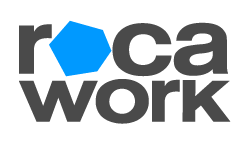The Evolution of Zendesk Roles: Meet the Champions of Customer Experience
As Zendesk has grown and businesses have expanded their use of the platform, the need for specialized Zendesk champions has become evident. Let's explore four key roles that are crucial for maximizing Zendesk's potential.
1. Zendesk Consultant
The Zendesk Consultant acts as the bridge between business needs and Zendesk functionality. This role requires a unique blend of technical knowledge and soft skills.
Key responsibilities:
Understanding business requirements
Translating business needs into Zendesk features
Maintaining strong relationships with stakeholders
A successful Zendesk Consultant needs to be a people person, capable of understanding the needs of those they're setting up Zendesk for. They should have a comprehensive knowledge of Zendesk's features, from basic setup to advanced configurations. As consultants progress, they move from handling day-to-day operations to understanding the broader business context and strategizing Zendesk's role within it.
2. Zendesk Developer
The Zendesk Developer role is perhaps the most technically demanding, focusing on enhancing Zendesk through custom development and integrations.
Core skills:
Proficiency in Zendesk API
Ability to connect Zendesk with third-party systems
Creation of productivity-enhancing apps and hacks
Zendesk Developers don't necessarily need to be as people-oriented as Consultants. Their focus is on understanding Zendesk's inner workings and finding ways to optimize its performance. They might work on projects like connecting Zendesk to client databases, customizing the Zendesk Guide, or developing unique solutions using Zendesk Sunshine.
3. Content Moderator
The Content Moderator plays a crucial role in knowledge management, ensuring that both customers and agents have access to the information they need.
Primary tasks:
Writing and maintaining help articles
Documenting internal processes
Organizing content for easy access
Content Moderators need to have excellent writing skills and a knack for organizing information. They're responsible for creating self-service content that can deflect tickets and internal documentation that helps agents resolve issues efficiently. Some Content Moderators also take on the role of Community Moderator, managing user interactions in community forums.
4. Bot Flow Designer
This emerging role focuses on leveraging AI for customer service, a field that's rapidly evolving within the Zendesk ecosystem.
Key responsibilities:
Designing efficient bot flows
Understanding both machine learning and business processes
Continuously optimizing bot performance
Bot Flow Designers need to bridge the gap between AI capabilities and business needs. They're responsible for creating bot interactions that are both efficient and user-friendly. This role requires ongoing attention, as bot flows need constant refinement based on user interactions and changing business requirements.
Conclusion
As businesses and Zendesk continue to evolve, these specialized roles become increasingly important. While larger organizations might hire for each role separately, smaller companies often rely on individuals or agencies to cover multiple roles. By understanding these key functions, businesses can better strategize their Zendesk implementation and support, ensuring they're making the most of this powerful platform.
If you’re also a crypto business looking for help, we’re here for you!
